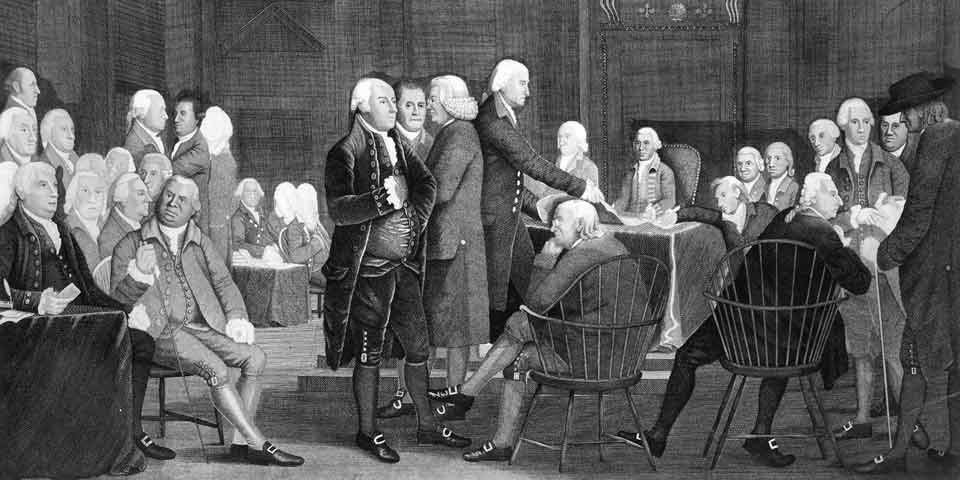Small Things Grow Great by Concord
We’ve all heard the phrase “divide and conquer” (divide et impera) but when was the last time you heard concordia res parvae crescunt?
Over 250 years ago – when the 13 colonies were on the cusp of the Revolutionary War with Britain – John Dickinson wrote a series of 12 essays called the Letters from a Farmer in Pennsylvania.
In these letters, Dickinson shared his thoughts on how the colonies should respond to the Townshend Acts (1767) – a set of taxes that the British imposed on glass, lead, paints, paper, and tea before the outbreak of the American Revolution.
In addition to these new taxes, the British we’re also explicitly penalizing the New York colony for refusing to house and feed British troops. Dickinson, known as The “Penman of the Revolution,” wrote the following in response to this so-called New York Restraining Act:
I say, of these colonies; for the cause of one is the cause of all. If the [British] parliament may lawfully deprive New York of any of her rights, it may deprive any, or all the other colonies of their rights; and nothing can possibly so much encourage such attempts, as a mutual inattention to the interests of each other. To divide, and thus to destroy, is the first political maxim in attacking those, who are powerful by their union. (emphasis Dickinson’s)
Said another way: If your goal is to destroy those who are powerful because of their union, first seek to divide them. Further, if you can encourage each party to focus on only their own interests, then division is easier.
Unite & Grow Great
Taking the opposite perspective: If your goal is to grow strong or powerful by nature of your union with others, then seek harmony with them, pay attention to their interests, and refuse to cooperate with one another’s enemies.
Remember: Concordia res parvae crescunt. Small things grow great by concord.
